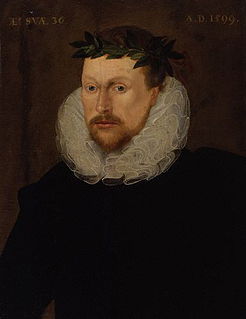A Quote by William Shakespeare
The web of our life is of a mingled yarn, good and ill together: our virtues would be proud if our faults whipped them not; and our crimes would despair if they were not cherished by our own virtues.
Related Quotes
We put pride into everything like salt. We like to see that our good works are known. If our virtues are seen, we are pleased; if our faults are perceived, we are sad. I remark that in a great many people; if one says anything to them, it disturbs them, it annoys them. The saints were not like that - they were vexed if their virtues were known, and pleased that their imperfections should be seen.
Before making peace, war is necessary, and that war must be made with our self. Our worst enemy is our self: our faults, our weaknesses, our limitations. And our mind is such a traitor! What does it? It covers our faults even from our own eyes, and points out to us the reason for all our difficulties: others! So it constantly deludes us, keeping us unaware of the real enemy, and pushes us towards those others to fight them, showing them to us as our enemies.




































